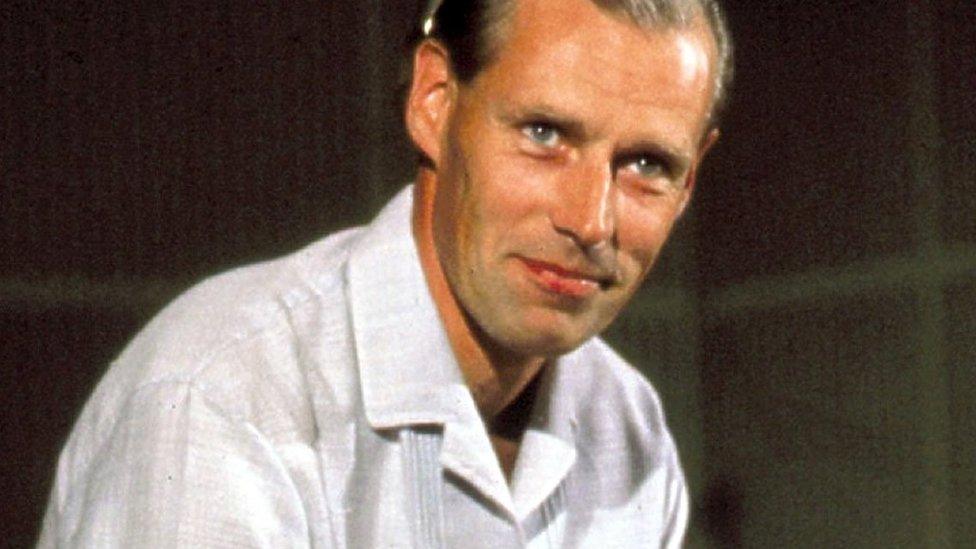Sir George Martin 'made' The Beatles
- Published

Sir George Martin was more than simply the fifth Beatle, insomuch as there probably wouldn't be any Beatles without him. He made them.
When he first heard the band's demo he was unimpressed. But he liked their manager Brian Epstein, he really liked the lads, and he was on the look out for a band for his Parlophone label, which at that point was mainly producing comedy LPs.
So, he needed them. But they needed him a whole lot more. They were like an orchestra without a conductor: a group of individuals, not a band greater than the sum of its parts.
Sir George sorted that out. He was their creative inspiration, the person who shaped their sound and turned what was tantamount to a skiffle group into the most famous rock-n-roll band in the world.
When John Lennon wrote Please, Please Me, he did so as an homage to Roy Orbison. Martin was having none of it. Too Slow! He told a disgruntled John. The producer upped the tempo, and Hey presto! The Beatles sound was made.
Sir George was a gifted musician, with a fine set of ears and a manner conducive to getting the most out of temperamental pop stars. He wasn't a shouter or a dictator, but was a cajoler and collaborator. He didn't say, 'Do this!,' but rather, 'how about?…'.
I went to his house fairly recently and was disarmed by his charm: his unaffected blend of humility and humour, informed by a fierce intelligence. He was open, honest, funny and wise. He loved The Beatles. Not just because they were 'his' co-creation, but because of who they were as individuals. It was their personalities that first attracted him to them, and it was their friendship that he treasured most.
Sir George Martin's contribution to music and culture is colossal. His work touched the lives of tens of millions of people around the world: it united rivals and inspired generations. He was a visionary musician, a brilliant arranger, and a genius producer. He never boasted or put himself forward. Why should he? His work always spoke for itself.